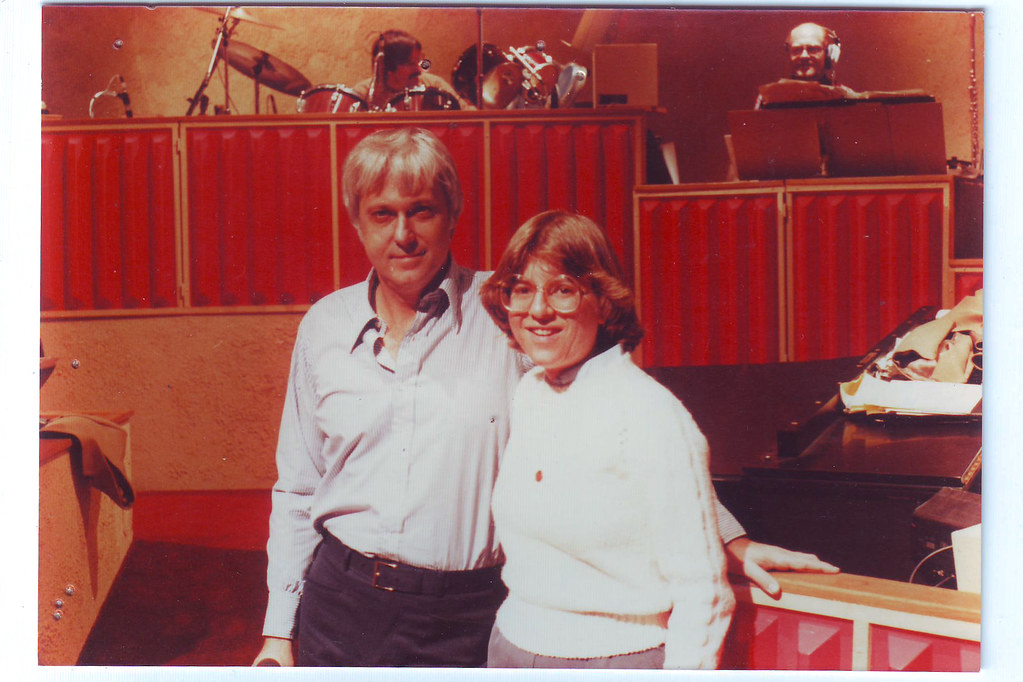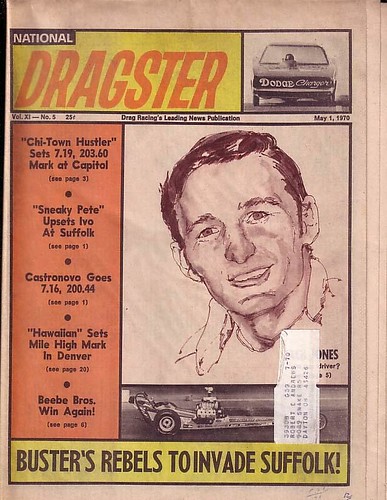
Jack Jones, the Grammy-winning crooner renowned for his smooth vocal interpretations and enduring presence in music halls and on television, passed away at the age of 86. His career, spanning more than six decades, etched an indelible mark on American popular music, most notably through his iconic performance of “The Love Boat” theme song and a string of romantic ballads that consistently resonated with audiences. His life narrative, rich with artistic achievement and personal evolution, represents a significant chapter in the history of American entertainment.
Born into a family deeply embedded in Hollywood’s golden age, Jones navigated the complexities of a storied lineage to forge a distinct artistic identity. He evolved from a young singer emulating his father’s forceful style to a master of the intimate croon, a transformation that garnered him critical acclaim and commercial success. His discography, comprising over 50 albums, along with countless performances across prestigious venues worldwide, underscored his dedication to a sophisticated sound that often defied the fleeting trends of contemporary music.
Jones died on Wednesday, October 23, at Eisenhower Medical Center in Rancho Mirage, California. His stepdaughter, Nicole Whitty, confirmed that his passing followed a two-year battle with leukemia. His manager, Milt Suchin, conveyed that Jones “passed peacefully holding hands with his wife, Eleonora, and his beloved toy poodle, Ivy.” As we reflect on his extensive contributions, this article will explore the arc of a remarkable career and the lasting legacy of an artist Frank Sinatra once hailed as “the best potential singer in the business.”

1. **Early Life and Showbiz Roots**John Allan Jones, universally known as Jack, was born on January 14, 1938, in the heart of Hollywood, California. His entry into the world was auspiciously timed, coinciding with his father’s recording of “The Donkey Serenade,” a hit song that would become a staple of his father’s illustrious career. Jack’s upbringing was deeply immersed in the world of entertainment, a legacy that would both inspire and challenge him throughout his life.
His mother was Irene Hervey, an Emmy-nominated actress whose extensive film and television career spanned over 50 years. His father was Allan Jones, a celebrated singer and actor, renowned not only for “The Donkey Serenade” but also for his romantic leads in classic productions like “Show Boat” (1936) and memorable appearances alongside the Marx Brothers in films such as “A Night at the Opera” (1935) and “A Day at the Races” (1937). This lineage placed Jack in a unique position, inheriting both talent and a formidable shadow to step out from.
Growing up, Jack’s early years were spent in a movie colony bungalow in Palm Springs, California, a childhood marked by privilege and the constant presence of hired help while his famous parents commuted to Hollywood. He received his education at the Nellie Coffman School in Palm Springs and, for two years, attended the Principia School, a Christian Science boarding institution in St. Louis. Recognizing his potential, his father also hired private drama and singing tutors, ensuring a comprehensive foundation in the performing arts.
Despite his rarefied status, Jack was self-conscious about his privileged life when he enrolled at University High School in Los Angeles, graduating in the class of 1956. He recounted his father sometimes dropping him off a block or two away from school, a subtle attempt to blend in. It was during these formative years that a pivotal moment occurred: his friend Nancy Sinatra invited her father, the legendary Frank Sinatra, to sing in their school auditorium. This experience, witnessing such an icon firsthand, solidified Jack’s aspirations to pursue a professional singing career.
Read more about: Melissa Gilbert’s Extraordinary Journey: How Her Birth Father Recognized Her on ‘Little House on the Prairie’

2. **The Genesis of a Crooner: Moving Beyond His Father’s Shadow**Weeks after his high school graduation in 1957, Jack Jones made his professional debut, joining his father’s act. Their initial performances took them to venues like Elko, Nevada, and later the prestigious Thunderbird Hotel in Las Vegas. During this period, Jack attempted to emulate his father’s forceful vocal style, a choice he later admitted was “a mistake,” as his own voice was less mature and suited to such a powerful delivery. This early experience highlighted the challenge of forging his own identity within the shadow of a celebrated parent.
The dynamics of the father-and-son act, which often incorporated “a lot of references to Mom and home,” were irrevocably altered when his parents divorced. This personal upheaval profoundly affected the performance, as Jack candidly stated, “that knocked the wind out of the whole thing.” It was a turning point that prompted him to venture out on his own, a decision that, while initially leading to a drop in his salary, ultimately brought him a profound sense of liberation and self-discovery. “I went out on my own, and my salary dropped, but I felt better,” he reflected, indicating a crucial shift in his artistic journey.
It was after this separation that Jones began to cultivate the distinctive approach that would define his career: crooning the lyrics. This transformation was described as “a magical transformation of his singing style and stage presence to something more casual,” allowing him to establish an intimate emotional connection with his audiences. This newfound style, characterized by its smoothness and personal touch, quickly became his trademark, setting him apart from the more boisterous vocalists of the era and laying the groundwork for his enduring success.
Jones’s journey of finding his unique voice culminated in him becoming an anomaly on the 1960s pop scene. While rock ‘n’ roll was on the ascent, he deliberately chose a different path, favoring big-band arrangements, romantic ballads, and the timeless compositions of the American Songbook. This steadfast commitment to a more traditional yet sophisticated sound not only defined his artistic integrity but also attracted a dedicated audience that appreciated the nuanced artistry of a true crooner, a decision that would prove prescient for his long and successful career.

3. **Breakthrough with Capitol and Kapp Records**Jack Jones’s burgeoning talent did not go unnoticed for long. His first significant break arrived when a demo recording he made for songwriter Don Raye found its way to Capitol Records. Impressed by his voice, the label signed the newcomer in 1959, marking the beginning of his formal recording career. Under Capitol, he released several singles and his debut album, “This Love of Mine,” showcasing his early potential and versatility. The album notably featured his “spritely rendition of the Steve Allen composition ‘This Could Be the Start of Something Big.’”
However, Capitol Records, in an attempt to align with prevailing musical trends, tried to mold Jones into a rockabilly singer. This creative direction proved to be a mismatch for his smooth vocal style and artistic inclinations. Following these “creative differences” and the label’s attempt to steer him toward a genre that didn’t suit him, Capitol ultimately dropped him. This setback, rather than deterring him, paved the way for a more fruitful collaboration that would truly launch his career.
His next move proved to be pivotal. Kapp Records recognized Jones’s unique talent and quickly picked him up. This partnership immediately bore fruit, as he struck gold right out of the gate with his first hit single, “Lollipops and Roses,” released in 1961. This success, coming shortly after the creative misstep at Capitol, cemented his place as a rising star and validated his commitment to his authentic crooning style.
Interestingly, Jones recorded “Lollipops and Roses” while on a two-week leave from the U.S. Air Force Reserve, a testament to his dedication even amidst his military commitments. He was still working his “day job” as a gas station attendant when his first album with Kapp was released. He recounted being “delighted when one day, while washing a customer’s windshield, he heard his song playing on the radio,” a moment of pure, unexpected joy that underscored his transition from a promising talent to a genuinely successful recording artist.

4. **The Grammy-Winning Hits: “Lollipops and Roses”**The ballad “Lollipops and Roses,” penned by Tony Velona, proved to be an ideal vehicle for Jack Jones’s velvety tones, perfectly showcasing the smooth, intimate quality that had become his trademark. Upon its release in August 1961, the single quickly gained traction, capturing the attention of both audiences and critics. It marked a significant milestone in his career, validating his decision to embrace a more traditional, sophisticated sound rather than succumbing to the rockabilly trends his previous label had pushed.
The song’s commercial success was notable, reaching an impressive No. 12 on Billboard’s Adult Contemporary chart. This achievement was a clear indication of Jones’s ability to connect with a broad audience, establishing him as a prominent figure in the easy-listening and traditional pop genres. The track’s appeal lay in its romantic narrative and Jones’s impeccable vocal delivery, which conveyed both warmth and sincerity.
“Lollipops and Roses” brought Jones his first major industry recognition, earning him a Grammy Award in 1962 for Best Solo Vocal Performance, Male. This prestigious accolade not only cemented his status as a leading vocalist but also positioned him as an heir apparent to Frank Sinatra, a comparison that would follow him throughout his career. The Grammy win was a definitive moment, celebrating his unique contribution to the American musical landscape and recognizing the artistry he brought to popular song.
This early Grammy success at Kapp Records was a powerful affirmation of his chosen path. It demonstrated that his commitment to a classic, crooning style could achieve both critical acclaim and commercial viability, even in a musical era increasingly dominated by evolving pop and rock sounds. “Lollipops and Roses” became a foundational hit, setting the stage for a career characterized by both artistic integrity and widespread popularity, proving that his distinctive voice had found its true home.

5. **The Grammy-Winning Hits: “Wives and Lovers”**Following the triumph of “Lollipops and Roses,” Jack Jones continued his string of successes, notably with the 1963 single “Wives and Lovers.” This track, a bouncy composition crafted by the acclaimed songwriting duo Burt Bacharach and Hal David, further propelled Jones into the spotlight. It showcased a slightly different facet of his vocal prowess, maintaining his signature smoothness while adapting to a more upbeat, sophisticated pop arrangement, characteristic of Bacharach’s distinctive style.
“Wives and Lovers” quickly ascended the charts, reaching No. 14 on Billboard’s Hot 100, a testament to its widespread appeal and Jones’s growing popularity. The song’s catchy melody and memorable lyrics resonated with listeners, solidifying his position as a hitmaker. Its success led to another significant honor: Jones collected his second Grammy Award for the song in 1964. The track was also nominated for Record of the Year, a testament to its cultural impact, though it ultimately lost to Henry Mancini’s “Days of Wine and Roses.”
An interesting anecdote surrounds the release of “Wives and Lovers.” Initially, Kapp Records had placed the tune on the B-side of the single. However, as Jones recounted to The Times in 1993, “disc jockeys turned it over and played it anyway.” This independent action by radio DJs underscored the song’s undeniable appeal and its immediate connection with audiences, forcing it into mainstream rotation and turning it into a bona fide hit despite initial label positioning. This organic rise further highlighted Jones’s ability to capture the public’s ear.
Over the years, “Wives and Lovers” evolved into one of Jones’s enduring standards. However, its lyrics, which essentially instructed women to cater to their husbands to maintain fidelity—phrases like “Don’t think because there’s a ring on your finger, you needn’t try anymore”—did not age well, leading to growing criticism for its “politically incorrect” themes by the 1990s. Jones addressed this backlash by humorously altering the words to poke fun at men, yet he never abandoned the tune. He acknowledged its contentious nature, stating, “Since it’s a politically incorrect song, I start it out with a disclaimer… It’s now part of history, it won a Grammy, and I meant no harm when I did it. It made my career, and I’m grateful for that.” This demonstrated his pragmatic approach to his legacy, acknowledging societal shifts while honoring the song’s pivotal role in his success.

6. **The “Love Boat” Phenomenon and Theme Song**For many, Jack Jones became synonymous with one of television’s most enduring and beloved theme songs: “The Love Boat.” Beginning in 1977, Jones lent his voice to the iconic tune for eight seasons and more than 200 episodes of ABC’s popular romantic-comedy series, a role that etched his smooth vocals into the collective memory of millions of TV viewers worldwide. The song, with words and music by Charles Fox and Paul Williams, perfectly encapsulated the show’s lighthearted and adventurous spirit, inviting audiences to “set a course for adventure; your mind on a new romance.”
Jones’s association with “The Love Boat” theme added a new, widely recognized layer to his already decades-long career. It provided him with an unprecedented level of household recognition, extending his appeal beyond traditional music audiences into the mainstream of television culture. His rendition of the theme became so ingrained that it significantly boosted his career, even granting him perks like “six weeks a year” performing on the S.S. Norway, where he was afforded “the best suite on the ship,” a truly “great time” as he reminisced in 2016 to Las Vegas Magazine.
The popularity of “The Love Boat Theme” led to its release as a single in 1979, with a cover of Barry Manilow’s “Ready to Take a Chance Again” on the B-side. The song quickly became a concert staple for Jones, eagerly anticipated by audiences who loved its nostalgic charm. While Dionne Warwick would take over vocal duties for the show’s ninth and final season, it was Jones’s original rendition that became indelibly linked with the series, a powerful testament to his distinctive interpretation.
Jones was not above poking fun at his signature tune, demonstrating a self-aware humor about its pervasive presence. In a memorable cameo in “Airplane II: The Sequel” (1982), he appeared as a tuxedo-clad lounge singer performing the theme song, a moment that embraced the song’s pop culture status. Furthermore, its pervasive charm was even leveraged in “Demolition Man” (1993), where Sandra Bullock’s character sets the mood for virtual with Sylvester Stallone by playing Jones’s song, further illustrating its unexpected and enduring cultural footprint. The “Love Boat” theme, therefore, became more than just a jingle; it was a cultural touchstone that amplified Jack Jones’s legacy for a new generation.

7. **Versatility in Film and Television Beyond the “Love Boat”**Jack Jones’s artistic reach extended significantly beyond the indelible “Love Boat” theme, demonstrating a versatile talent that found expression in various cinematic and televised productions. His vocal gifts were frequently sought after for film soundtracks, imbuing them with his distinctive smooth style. Notably, he lent his voice to the theme song “This World Is Yours” for the 1968 film “Anzio” and performed the title track for the 1963 movie “Love with the Proper Stranger,” showcasing his ability to enhance narrative through song long before his most famous television association. These contributions positioned him as a sought-after interpreter of dramatic and romantic cinematic themes.
Beyond his vocal contributions, Jones also ventured into acting, accumulating a diverse range of credits across film and television. His early acting work included an appearance in “Juke Box Rhythm” in 1959, demonstrating an early inclination toward on-screen performance. Later, he took on roles in more dramatic fare, such as the 1978 horror film “The Comeback,” and made a notable appearance in the 2002 television movie “Cruise of the Gods.” These acting endeavors showcased a performer unafraid to explore different facets of the entertainment industry, contributing to projects that spanned various genres and formats.
His presence in cinema extended into more contemporary productions, often as himself or in roles that leveraged his established persona. A memorable cameo in the 2013 film “American Hustle” saw him appearing as a nightclub singer, a nod to his prolific career in such venues. Furthermore, his music became a cultural touchstone within films, with his signature “Love Boat” theme being humorously integrated into “Airplane II: The Sequel” (1982) and even used to set a mood in “Demolition Man” (1993). This widespread inclusion of his work in film underscores his lasting relevance and the way his sound transcended specific eras, becoming an enduring part of the cultural tapestry.
Filmmakers consistently turned to Jones when seeking to evoke a sophisticated, easy-listening ambiance characteristic of the 1960s. His recordings were featured prominently on the soundtracks of critically acclaimed films such as “Good Morning, Vietnam” (1987), “Goodfellas” (1990), and “American Hustle” (2013), further cementing his music’s role in cinematic storytelling. Additionally, his hit “Lollipops and Roses” famously accompanied the end credits of a 2008 episode of “Mad Men,” illustrating how his songs seamlessly integrated into narratives that sought to capture the essence of a particular historical period, highlighting his music’s timeless appeal and versatility.

8. **Enduring Theatrical Presence and Critically Acclaimed Performances**Jack Jones’s artistic journey was not confined to recording studios and television screens; he cultivated an equally robust and celebrated career in live performance, particularly within the theatrical realm and prestigious nightclubs. His captivating stage presence and refined vocal delivery made him a natural fit for musicals, where he embraced lead roles in regional productions. Audiences saw him in beloved classics such as “The Pajama Game,” “Oklahoma!” and “She Loves Me,” showcasing a versatility that allowed him to inhabit diverse characters and musical styles with conviction and charm.
A significant highlight of his theatrical career was his starring role in a 1995 Los Angeles production of “South Pacific,” where he brought his interpretive skills to a role deeply embedded in the American musical canon. This commitment to live theater underscored his dedication to connecting with audiences directly, offering a more intimate and immediate experience than his recorded works. His performances were often lauded for their seamless professionalism, drawing appreciative crowds who valued his sophisticated approach to traditional nightclub entertainment.
The pinnacle of his theatrical endeavors arguably arrived in 2001, when Jones embarked on a national tour as Don Quixote and Miguel Cervantes in Dale Wasserman’s iconic musical “Man of La Mancha.” This demanding dual role allowed him to fully explore his dramatic and vocal range, delivering the show’s powerful anthems, most notably “The Impossible Dream.” His rendition of this signature song deeply moved audiences across the country, as noted by critics such as Vanessa Winans of The Toledo Blade, who observed that despite any perceived vocal shifts with age, Jones “delivered” the song with the gravitas his fans expected, reaffirming his mastery of the material and his enduring connection with his public.
Throughout his extensive career, Jones was a quintessential performer for upscale venues, gracing stages at Carnegie Hall, the Kennedy Center, and the London Palladium. His ability to command a room with his smooth baritone and engaging persona was legendary. At the Oak Room of the Algonquin Hotel in Manhattan in 2010, celebrating his 52nd year in show business, Stephen Holden of The New York Times described his performance as “a kind of master class in traditional nightclub performance: suave but intimate, alternately preening and humble, seemingly casual but seamlessly professional,” emphasizing his thoughtful outlook that tinged every song with a sense of a man taking a moral inventory of his life.
Read more about: Gavin Creel, Tony-Winning Broadway Star of “Hello, Dolly!”, Dies at 48: A Legacy of Talent and Advocacy

9. **Frank Sinatra’s Endorsement and a Legacy of Sophisticated Pop**Jack Jones was often positioned as a torchbearer for the classic American crooner, a lineage that inevitably drew comparisons to the legendary Frank Sinatra. Sinatra himself, a titan of the genre, recognized Jones’s exceptional talent early in his career, famously declaring him “the best potential singer in the business.” Sinatra’s praise was not merely a casual compliment; he elaborated, stating that Jones possessed “a distinction, an all-round quality that puts him potentially about three lengths in front of the other guys,” a testament to his unique vocal quality and formidable stage presence. This endorsement from “Ol’ Blue Eyes” was a profound validation that shaped perceptions of Jones’s career.
Jones carved out a unique niche in the 1960s pop landscape, steadfastly adhering to big-band arrangements, romantic ballads, and the timeless compositions of the American Songbook, even as rock ‘n’ roll was on the ascent. This commitment to a more traditional, sophisticated sound defined his artistic integrity. He scored numerous chart successes, including three No. 1 hits on the Billboard Adult Contemporary chart: “The Race Is On” in 1965, “The Impossible Dream” in 1966, and “Lady” in 1967. These achievements underscored his ability to maintain significant commercial viability while remaining true to his artistic preferences, demonstrating a rare balance in a rapidly evolving music industry.
His consistent excellence was further recognized through multiple Grammy nominations beyond his two wins for “Lollipops and Roses” and “Wives and Lovers.” He received another nomination for “The Impossible Dream,” showcasing the enduring impact of his interpretive skills on popular standards. In 1998, he garnered yet another Grammy nomination for his album “Jack Jones Paints a Tribute to Tony Bennett,” a testament to his continued relevance and respect within the music community, even decades into his career. These accolades solidified his status as a major interpretive vocalist and a significant contributor to the tradition of sophisticated pop music.
Throughout his extensive career, Jones recorded over 50 albums, each a testament to his dedication to a nuanced artistry. He performed for illustrious audiences at the White House during the presidencies of Lyndon B. Johnson and Ronald Reagan, and twice for Queen Elizabeth II and the royal family. His appearances on iconic television variety shows hosted by luminaries such as Dinah Shore, Ed Sullivan, Andy Williams, Carol Burnett, Jerry Lewis, Dean Martin, Judy Garland, and Steve Allen further embedded his polished style into the American consciousness. This broad exposure allowed him to cultivate a wide, dedicated audience, affirming his role as an enduring and beloved figure in popular entertainment.

10. **Personal Life: Marriages, Family, and Resilience**Jack Jones’s public persona as a suave “ladies’ man” on stage was mirrored by a complex and eventful personal life, marked by six marriages over the decades. His first union was with actress Jill St. John, a high-profile marriage that lasted from 1967 to 1969. Following this, he married Gretchen Roberts in 1970, and later Kathy Simmons, a marriage that spanned from 1976 to 1982. He also had a romantic involvement with actress Susan George, adding to the narrative of his charismatic appeal. These relationships, while often in the public eye, formed a significant part of his life outside the spotlight.
His fifth marriage was to Kim Ely, a union that proved to be his longest, lasting from 1982 until 2005. This period saw the birth of their daughter, Nicole, in 1991, adding to his growing family. Jack Jones was also a father to another daughter, Crystal Thomas, from his relationship with Lee Fuller (also mentioned as Katie Lee Nuckols in one source). The presence of his children brought another dimension to his life, anchoring him amidst the demands of a high-profile career.
For the latter part of his life, Jones found a stable and enduring partnership with his sixth wife, Eleonora Donata Peters, whom he married in 2009. They resided in the serene Coachella Valley for several decades, a testament to his desire for a settled life away from the constant hustle of major entertainment hubs. His manager, Milt Suchin, recounted that Jones “passed peacefully holding hands with his wife, Eleonora, and his beloved toy poodle, Ivy,” offering a poignant glimpse into the final moments of his life, surrounded by his closest companions.
Jones is survived by his wife Eleonora, his stepdaughters Nicole Whitty and Colette Peters, his daughters Crystal Thomas and Nicole Ramasco, and three grandchildren: Grace, Mercer, and Agnes. His willingness to candidly address personal challenges, such as the aging lyrics of “Wives and Lovers” or the complexities of his marital history, often revealed a pragmatic and resilient character. He navigated a demanding career while cultivating a rich personal life, marked by both public attention and private joys, embodying a life fully lived with grace and humor.
Read more about: Charlie Sheen’s Unprecedented Addiction: Cartel Cut-Off, Career Fall, and the Road to Sobriety

11. **Later Years, Continued Acclaim, and Lasting Impact**As Jack Jones entered his later years, his commitment to his craft remained unwavering, allowing him to maintain his smooth singing voice and active performing schedule well into his 80s. A notable personal change in 1980 saw him dropping his smoking habit, a decision that undoubtedly contributed to his remarkable vocal longevity. He became a fixture in casino nightclubs, delighting audiences with his timeless repertoire, proving that his elegant style and captivating stage presence retained their allure across generations.
His enduring legacy was recognized with tangible honors, solidifying his place in the annals of entertainment history. In 2003, he was granted a star on the Palm Springs Walk of Stars, acknowledging his deep connection to the Coachella Valley, where he resided for decades. This was complemented by a star on the Hollywood Walk of Fame, a universal symbol of his significant contributions to American culture. These accolades are testaments to a career characterized by both artistic integrity and widespread popular appeal.
Celebrating his 80th birthday at Palm Desert’s McCallum Theatre in 2018, Jones, ever the witty performer, quipped about his longevity. He remarked that with many of his singing “rivals” having passed, his ambition was now “to be the world’s greatest singer by default,” a moment of characteristic humor that underscored his self-awareness and continued passion for singing. His perspective on music, as he articulated it, was profoundly humanistic: “I want a song to make the audience laugh or make it cry, make a very poignant statement,” a philosophy that guided his interpretations and resonated deeply with his listeners.
Jack Jones’s passing on Wednesday, October 23, following a two-year battle with leukemia, marked the end of an era for many who cherished the sophisticated sound of the American Songbook. His manager, Milt Suchin, described his final moments as peaceful, holding hands with his wife, Eleonora, and his beloved toy poodle, Ivy. While the world mourned the loss of a beloved crooner, his six-decade career leaves behind a vast discography of over 50 albums and countless performances, establishing him not merely as a singer, but as a cultural institution whose voice defined an era of romantic ballads and enduring musical excellence. His legacy, rooted in a distinctive sound and an unwavering dedication to quality, will continue to inspire and entertain for generations to come.
Read more about: Gavin Creel, Tony-Winning Broadway Star of “Hello, Dolly!”, Dies at 48: A Legacy of Talent and Advocacy
Jack Jones’s journey through life and music was a testament to enduring talent, artistic integrity, and a profound ability to connect with audiences. From his early days navigating a showbiz lineage to his reign as a Grammy-winning crooner and the voice of a beloved television theme, he crafted a legacy built on smooth vocals and a captivating stage presence. His distinctive sound, which often swam against the currents of changing musical trends, ultimately solidified his status as an irreplaceable figure in American popular music. As we reflect on his six-decade career, his impact reverberates through the timeless ballads he perfected, the stages he graced, and the hearts he touched, ensuring that the smooth, sophisticated artistry of Jack Jones will continue to enchant for generations to come.




